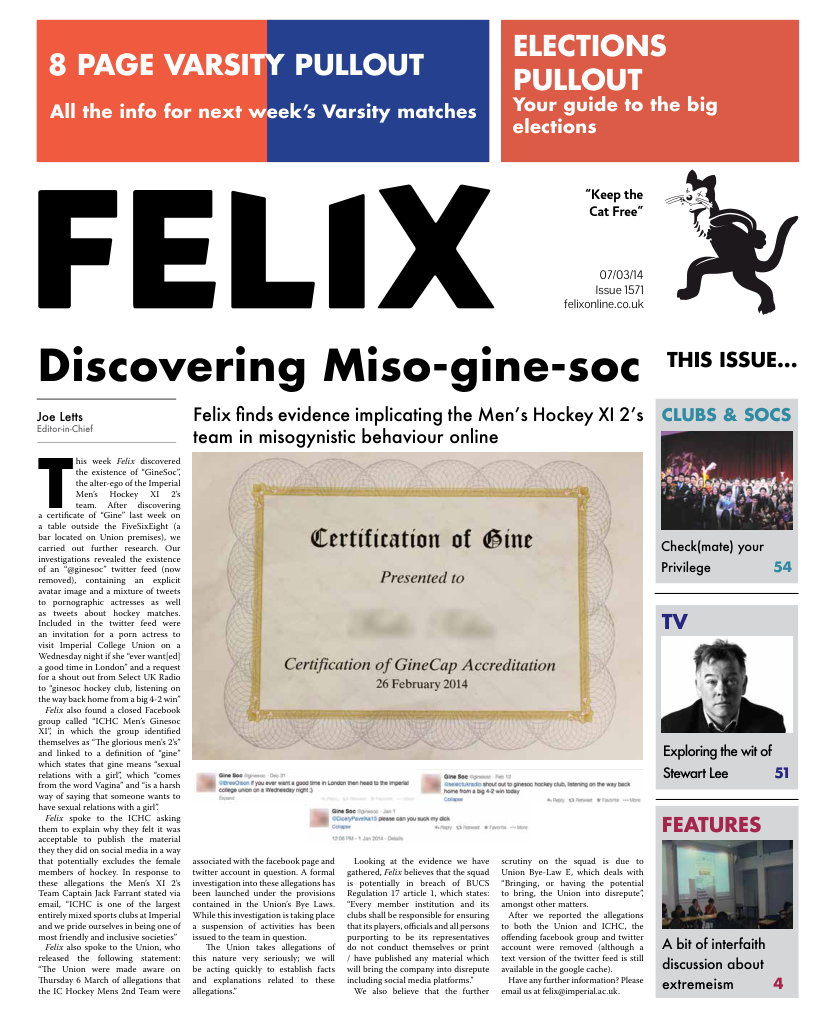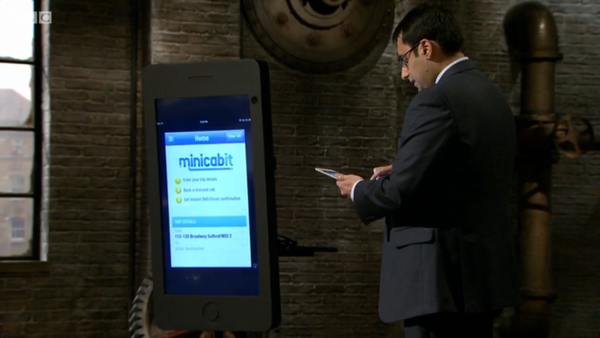An Joseph Interfaith Foundation Discussion – Extremism: Its Root Causes And How To Address Them
A recent Interfaith discussion at Imperial College London was organised by the Joseph Interfaith Foundation (JIF) and the Islamic Society at Imperial. Speakers from the Jewish Society (JSoc), the Islamic Society (ISoc) and the Catholic Society (CathSoc) discussed their views on the root causes of ex
Comment: Bension Tilley (JSoc) Extremism is one of the most hotly-debated talks of our generation. The publicity it receives in the media reflects its profound importance in modern day political discourse. It would be true to say that the vast majority of extremism that we hear of is Islamic in nature, but it would be ignorant of us to restrict our opinions on extremism only to what we hear in the media. In order for a person to be able to participate fully in a discussion on extremism, he must first appreciate the fact that extremism can permeate into any subject matter, be it political, religious, economic or otherwise. Then he must understand that his view on extremism is not shared by all: extremism is a fundamentally subjective matter. What is considered extremist to one person may not be to another. The most appropriate forum for the analysis of extremism is in a public debate where all views are free to air in a non-judgmental atmosphere. I believe that the IC Extremism Seminar encapsulated all of these qualities, and as a result, all present were able to put forward their arguments in total confidence that they would not be judged for them. This made for one of the most stimulating debates I have ever been part of, both at Imperial and outside Imperial. Although nothing was overtly concluded overall from the discussion, I feel that all present, including the speakers, came away with an altered opinion on how extremism manifests and its importance in their daily lives. It was an absolute pleasure working with the Joseph Interfaith Foundation, the Islamic Society and Catholic Society on the seminar. The way the societies worked together is testament to the strong interfaith relations present on campus here at Imperial. Everyone present approached the interfaith discussions with a completely open mind, willing to learn about the traditions of other religions to broaden their already considerable knowledge of interfaith. Events like these encompass the true spirit of interfaith and I am hopeful that there will be many more interfaith events to come in the remainder of this academic year, to which you are all invited.
Comment: Yusuf Qureshi (ISoc) Extremism. A word which bombards us everyday in the media and has some form of definition in every single person’s vocabulary. The basic definition of extremism is the maximum possible deviation from a central reference point, which in a religious context, would be our Prophets and scriptures. That being said, extremism is not necessarily violent. It is possible to be extreme in seemingly noble deeds such as prayer, fasting and even charity! The topic discussed, however, was a specific form of extremism; namely violence in the name of religion. As a Muslim, you would imagine that I shall now proceed to ramble on about how Islam is a peaceful religion and how the people who commit such disgusting and heinous crimes are definitely not acting within the realms of Islamic law. I won’t. Remember the aforementioned central reference point? For Muslims, it is the Quran and the way of the Prophet Muhammad (Peace and Blessings be upon him). Muslims embrace the Quran as the word of God, who states that ”whoever kills a soul unless for a soul or for corruption [done] in the land - it is as if he had slain mankind entirely. And whoever saves one - it is as if he had saved mankind entirely.” [5:32]. As a Muslim, when I see such disregard for human life from people who claim to follow the same book and Prophet as myself, I can’t help but wonder, have they even read the Quran? Have they any notion of how many times they’ve slain the whole of mankind in the sight of God? Surely, had anybody read this verse, it would speak volumes on the sanctity of life in Islam? The fact of the matter is that “violent religious extremism” almost never has any religious motivation behind it. When speaking about extremism, two groups of people spring to mind. In any given ideology, there will be people who are willing to defame its name for their own reasons; generally political. This is the first group: few in number but with a clear but malicious vision. ‘Predators’ is a good description. The second faction is comprised of ignorant zealots, people who have immense enthusiasm for their religion but lack knowledge of its teachings; puppets. To put it very simply, the latter are manipulated by the former, who exploit the ignorance to give the illusion that the basis of these actions are religious teachings. The solution is very simple: Education and stemming the flow of naive enthusiasts, ensuring that the predators are starved of puppets. We should see that religious leaders are properly educated and trained in the knowledge of their own religions and the state of current affairs and political climate, empowering them to take control of the surrounding community and to direct the energy of enthusiasts into something productive and beneficial to society.
Comment: Theo Susanto (CathSoc) JIF is among the rare chances where different faith groups can engage in open discussion. This is the second year I represented CathSoc. Unfortunately this year, I was less prepared. I was ill and still losing my voice; I was really nervous and I stuttered often. Despite that, people gave me tremendous support and made me comfortable in continuing the dialogue. Ms Mehri Niknam is extremely enthusiastic and always pushes us to loosen formalities and political correctness. Without which, a fruitful and meaningful discussion would be difficult to achieve Personally I am always anxious about the event; being put out of my comfort zone. There is always the worry that the words I uttered were not those that I intended, that I was not representing the views of my faith properly. This year’s event is different though; instead of representing my faith, I was there to discuss strictly my thoughts, and my rather mild experiences pertaining to extremism. It was a powerful feeling to hear stories from other people about their experience: Harassment as what Benison had experienced can happen to anyone around us. Often we do not notice; little things that may push someone to the edge constantly happen. Among some of the privileged, I tend to overlook the fact that extremism does not just occur with sensationalistic violence in some faraway land; dialogue such as this serves as a powerful reminder, that such misfortunes could happen to someone we can relate to. At first, it seems that only extreme constraints warrant such extreme reactions. However, it is apparent from the dialogue that the root was not just the constraints, but also the inclination to accuse the ‘other’; to find scapegoats on the matters that befall the community. Such unfortunate chain of events is possible mainly due to the suppression by those with knowledge and vision.Amazing is the significance of a strong will, no matter how twisted it is, in spilling out and influencing others to follow it. It would be great for events such as this to grow, as they create a comfortable place for people to engage their viewpoints, build or rebuke their principles, and often to allow people to hear the other side of the story. Sometimes we get too comfortable with our own community. I am afraid that in those cases, extremism often starts to sprout.
Mehri Niknam (JIF) The success of the seminar can be gauged from the fact that it was due to finish at 7:30. We carried on talking till 8:30 The Joseph Interfaith Foundation is a national joint Muslim-Jewish interfaith organisation. We are committed to fostering engagement through constructive and realistic dialogue and interaction between the Muslim and Jewish communities in Britain. The Foundation also aims to promote a deeper understanding of both faiths among the general public. The foundation’s projects are focused on 4 major areas: 1) University students; 2) Religious leaders; 3) Muslim & Jewish physicians, 4) Academics. . Please see our website: www.josephinterfaithfoundation.org We offer support and co-operation with students/student unions for the promotion of interfaith relations, single faith discussions, and student discussions in the widest and most challenging aspects. We support freedom of speech, condemn hate speech, respect and protect the privacy of all students who participate in our projects







